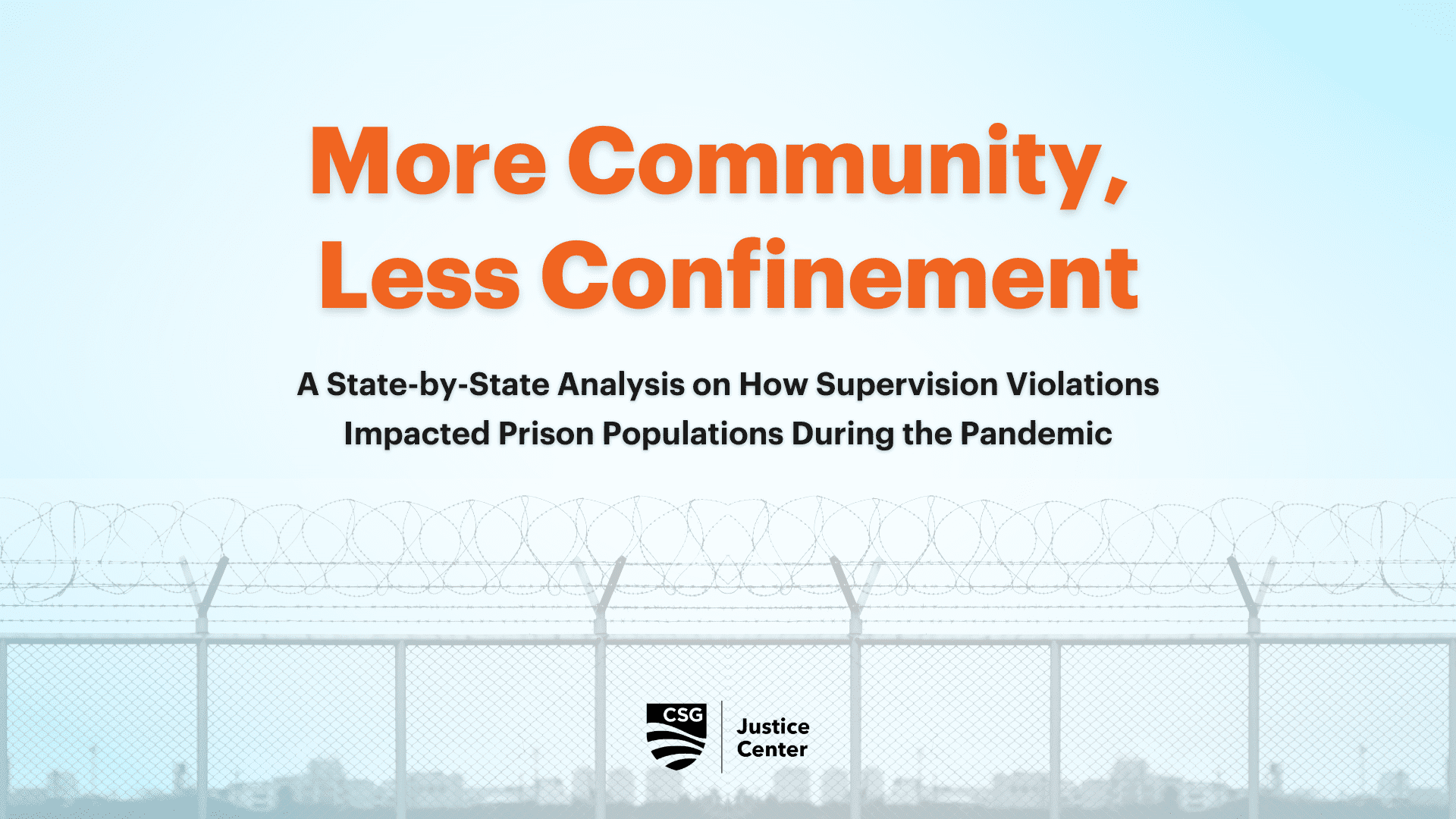
New State-by-State Analysis Explores How Supervision Violations Impacted Prison Populations During the Pandemic
State prison populations shrank by an unprecedented 14 percent in 2020, but supervision violations still drive a substantial share of new admissions, according to a report by The Council of State Governments (CSG) Justice Center.
More Community, Less Confinement: A State-by-State Analysis on How Supervision Violations Impacted Prison Populations During the Pandemic is based on a study conducted in partnership with the Correctional Leaders Association and supported by Arnold Ventures.
The CSG Justice Center surveyed corrections leaders in all 50 states to understand the impact of community supervision (i.e., probation, parole, post-release supervision) on state prison populations. The resulting data span 3 years—from 2018 to 2020—and uncover how the number of people sent to prison for supervision violations changed during and prior to the pandemic.
In response to the threat of COVID-19, many parts of the criminal justice system halted operations to reduce in-person contact and prevent the spread of the virus. While some states released people from prisons early, the population decline in state prisons was largely driven by a drop in the number of people being admitted. Roughly 200,000 fewer people were admitted to prison in 2020 due to changes in offending behaviors, local law enforcement, community supervision, and court operations.
Overall, there were roughly 167,000 fewer people in state prisons in 2020. One-third of the total drop (57,000 people) was due to fewer people sitting in prison for supervision violations. In addition, about 73,000 fewer people entered prison for supervision violations in 2020—a 30 percent drop in a single year. The cumulative result over this 3-year data collection effort showed that there were 31 percent fewer people in prison for technical supervision violations and 18 percent fewer people in prison for new offense violations, while all other populations (primarily new court commitments) dropped just 12 percent.
Despite the decline in total prison population, supervision violations still accounted for 42 percent of prison admissions in 2020, however. This included roughly 98,000 people admitted to prison for technical violations, such as missed curfews or failed drug tests. The large share of prison admissions from probation and parole continues to increase corrections costs and jeopardize progress for people in the criminal justice system.
As policymakers explore changes, it will also be helpful to look at actions that may have contributed to reductions prior to the pandemic. Indeed, from 2018 to 2019, states saw a faster decline in prison admissions for supervision violations (down five percent), especially technical violations, (down six percent) than other types of admissions (down just two percent).
If states sustain a reduction of 57,000 fewer people incarcerated for supervision violations each year, they could save an estimated $2.7 billion annually. These savings can be reinvested into mental health and substance use treatment services, community-based supports, and workforce development initiatives—all evidence-based services proven to reduce recidivism and positively impact the lives of people on supervision.
The full analysis, More Community, Less Confinement: A State-by-State Analysis on How Supervision Violations Impacted Prison Populations During the Pandemic, is now available online.
 Zero Returns to Homelessness Initiative Launches Nationally, with Pennsylvania Leading the Way
Read More
Zero Returns to Homelessness Initiative Launches Nationally, with Pennsylvania Leading the Way
Read More
 New Hampshire Continues Justice Reinvestment Effort to Improve Conditions for People Who Are High Utilizers of Criminal Justice and Behavioral Health Systems
Read More
New Hampshire Continues Justice Reinvestment Effort to Improve Conditions for People Who Are High Utilizers of Criminal Justice and Behavioral Health Systems
Read More














